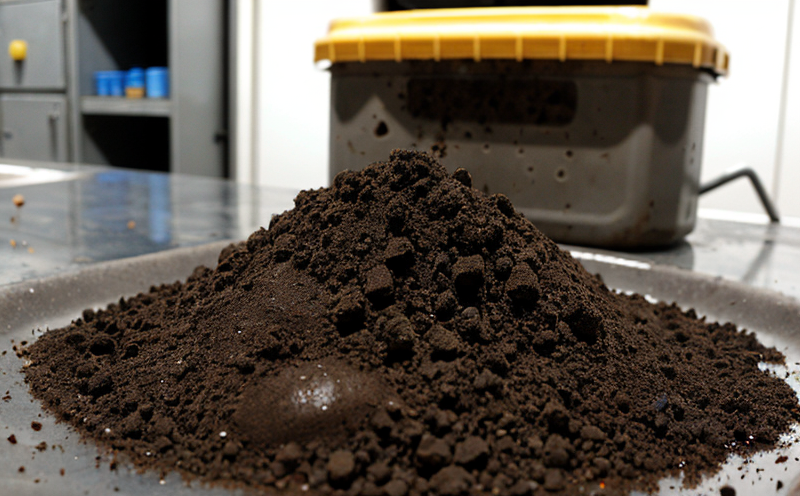Polymer Residue and Additive Profiling
The process of polymer residue and additive profiling is a critical analytical service used to identify and quantify residual monomers, by-products, and additives in polymer materials. This analysis ensures that the final product meets stringent quality control standards and regulatory compliance requirements. Understanding the presence and concentration of these compounds can provide insights into the manufacturing process, potential health risks, and environmental impact.
Residual monomers are often a by-product of the polymerization reaction, while additives like plasticizers or stabilizers may be introduced during processing to enhance performance properties such as flexibility or durability. These residues need careful monitoring because they can sometimes lead to undesirable effects on product quality and safety. By profiling these elements, manufacturers can ensure that their products comply with international standards.
For instance, the ISO 17826 standard provides guidelines for determining volatile organic compounds in polyolefins, which is crucial for assessing the off-gassing potential of plastic materials. Similarly, the ASTM D3945-07 method offers a way to measure total extractable solids from rubber products, helping assess their compatibility with various environments.
The significance of this analysis extends beyond mere compliance; it plays an essential role in product development and optimization. Understanding how different additives interact within the polymer matrix allows engineers to make informed decisions about ingredient selection, processing conditions, and formulation adjustments. This knowledge can lead to more efficient production processes and improved end-product performance.
Another important aspect of this analysis is its contribution towards ensuring food safety when polymers are used in packaging applications. Regulatory bodies like the FDA have established limits on certain types of residues that could migrate into food products, which underscores the necessity for thorough testing and profiling.
In summary, polymer residue and additive profiling serves as a vital tool for maintaining product integrity across various industries including manufacturing, pharmaceuticals, and consumer goods. It enables companies to stay ahead of regulatory changes while continuously improving their offerings based on scientific evidence derived from rigorous laboratory analyses.
Scope and Methodology
The scope of polymer residue and additive profiling encompasses several key areas aimed at providing comprehensive insights into the composition of polymer materials:
| Area | Description |
|---|---|
| Residual Monomers | Detection and quantification of monomeric units that remain after polymerization. |
| Unreacted Comonomers | Identification of any comonomers not fully converted into the desired polymer structure. |
| By-Products | Analysis of compounds formed as a result of side reactions or impurities present during synthesis. |
| Additives | Determination of plasticizers, stabilizers, antioxidants, and other functional additives used in the production process. |
Our laboratory employs state-of-the-art analytical techniques tailored specifically for this purpose. These include gas chromatography (GC), liquid chromatography (LC), Fourier transform infrared spectroscopy (FTIR), nuclear magnetic resonance (NMR) spectrometry, and mass spectrometry (MS). Each method provides unique advantages depending on the nature of the sample being analyzed.
The methodology involves multiple steps starting with sample preparation where contaminants are removed through filtration or extraction processes. Once prepared, the samples undergo various chromatographic separations followed by detection via appropriate instrumentation mentioned above. Finally, the data obtained from these analyses is interpreted against relevant international standards to determine whether the polymer meets specified criteria.
Eurolab Advantages
EuroLab offers unparalleled expertise and precision when it comes to conducting polymer residue and additive profiling services:
- Comprehensive Analytical Capabilities: Our lab boasts a wide range of analytical tools capable of detecting even trace levels of residues and additives.
- Experienced Technicians: Highly skilled professionals who possess deep knowledge about polymer chemistry and its applications.
- Up-to-Date Equipment: Investment in cutting-edge technology ensures our results are accurate and reliable.
- Rigorous Quality Control: Stringent quality assurance measures guarantee high standards throughout every stage of the testing process.
Beyond just technical proficiency, EuroLab prides itself on delivering exceptional customer service. From initial consultation through final report delivery, our goal is to provide a seamless experience for all clients seeking our services.
Use Cases and Application Examples
- Polymer Manufacturing: Ensuring consistency in raw material quality by verifying that the correct proportions of additives have been incorporated.
- Pharmaceutical Packaging: Confirming compliance with FDA regulations regarding potential leachables from packaging materials into drugs or medical devices.
- Consumer Goods: Evaluating the safety profile of new product formulations before launch to prevent recalls due to harmful residues.
- Polymer Recycling: Assessing whether recycled polymers contain unacceptable levels of contaminants that could affect recycling processes or end-product quality.
These examples illustrate just some of the ways in which polymer residue and additive profiling can add value across diverse sectors. By leveraging this service, organizations can enhance their reputation for delivering safe, reliable products while also staying compliant with regulatory requirements.





